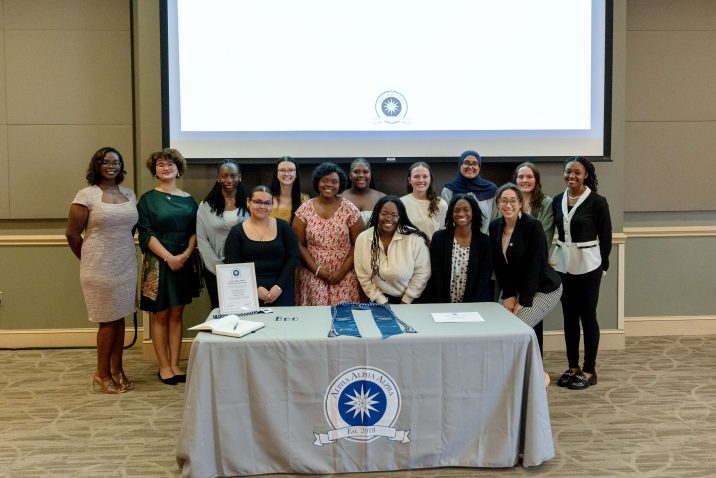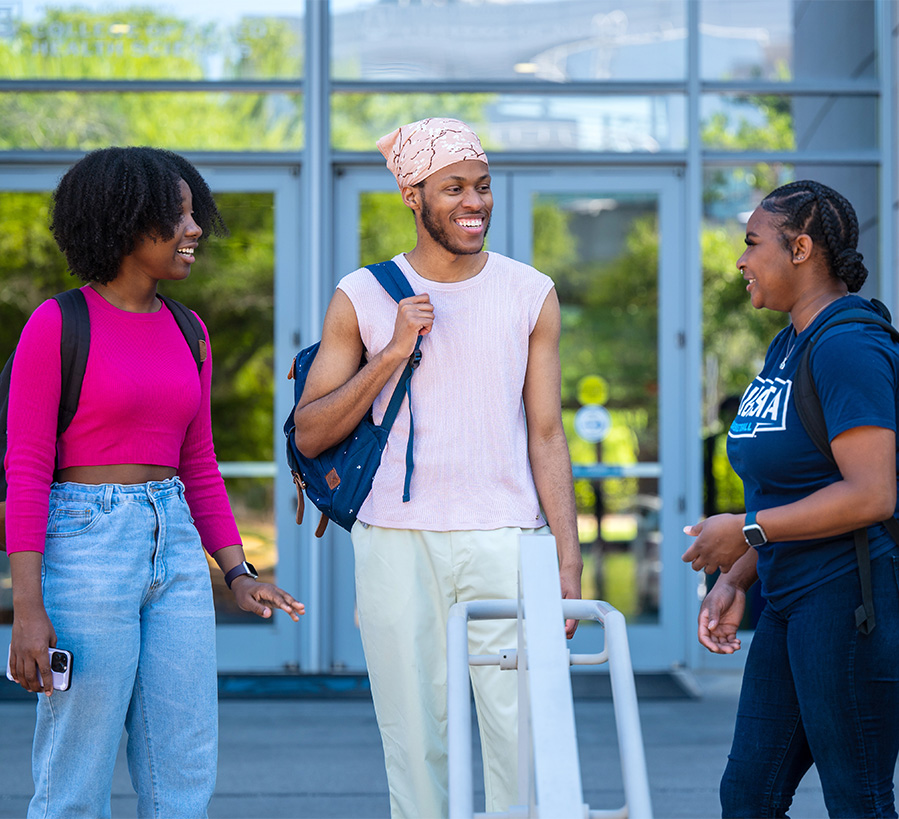Psychology
With a Master of Science in Psychology, you’ll be prepared for a career in mental health or research, or you can continue working toward a doctoral degree.
Students study as a cohort and work closely with faculty in psychological assessment, therapy, and research.
By choosing to earn your master’s in psychology from The Katherine Reese Pamplin College of Arts, Humanities, and Social Sciences, you’ll be part of a program that enjoys small classes, individual mentoring, and multiple degree tracks to choose from.
Psychology is for you if you consider yourself
Life-Changing
Life-Saving
Education
Want to learn more about the Psychology program at Augusta University?
Request InfoWhat You'll Study
Coursework
Students in Augusta University’s Master of Science in Psychology will choose from three separate concentrations, each with unique requirements.
The program is designed as a full-time, year-round program, with most students completing the degree in two years.
Curriculum | Admissions Criteria | Tuition and Fees | Application Deadlines
Focal Points
Concentrations
Master of Science in Psychology with a concentration in Applied Experimental
Master of Science in Psychology with a concentration in Applied ExperimentalMaster of Science in Psychology with a concentration in Clinical / Counseling
Master of Science in Psychology with a concentration in Clinical / CounselingMaster of Science in Psychology with a concentration in General Experimental
Master of Science in Psychology with a concentration in General Experimental



EXPLORE. EXCEL. EXPAND.
Graduate School Advantage
Augusta University's graduate programs are among the best in the nation – and the world – and our graduate students are our most valuable assets. To ensure that our students earn more than a degree, the Graduate School offers a range of opportunities so they can develop the leadership, communication and personal skills needed for a rewarding life and academic, research or professional career.
See what the Graduate School has to offer »
About the Graduate SchoolExperience-based Education
Outside the Classroom
Internships provide valuable work experience in a variety of relevant settings. Opportunities to participate in internships with faculty in research prepare students for careers in research or academia.
Psychometric and clinical training facilities allow for a wide range of research possibilities along with therapy training.
Individual Mentoring
All students have a faculty mentor to guide them through the program and work alongside faculty members on research projects.
Financial Assistance
Graduate assistantships can reduce tuition and provide a monthly income for students in the program.
Multiple Tracks
The master’s in Psychology offers three tracks that ensure students advance toward the careers that excite them.
Small Classes
With student-to-faculty ratios of 16:1 or smaller, students always receive individual attention and are never lost in the crowd.
Your Future
Career Options
According to the U.S. Bureau of Labor Statistics, job growth for mental health counselors is projected to rise much faster than the average.
The median pay for a mental health counselor is $53,710 per year.
Profiles
Student Stories
I am constantly learning and being challenged in new ways. The culmination of many experiences that I have had in my program has led to a tremendous amount of professional and self-growth that I am especially thankful for.
Samantha Sandlin
As a student on the experimental track, I have had plenty of opportunities to conduct different types of research. This has allowed me to narrow down my interests and master a variety of skills.
Elinita Pollard
Admissions Criteria at a Glance
GPA: Overall GPA of 3.0 on a 4.0 scale at the Baccalaureate level calculated on all undergraduate work.
Degree Requirement: Minimum of a Bachelor’s degree or equivalent from an accredited college or university.
Transcripts: Official transcripts are required from all universities and colleges ever attended. Unofficial transcripts from US colleges and universities can be used in the admissions review process in lieu of official transcripts for this program.
Standardized Test Requirements: None are required for this program.
Prerequisite Coursework: Undergraduate coursework in General Psychology, Statistics and Psychology Research Methods should be completed (or in progress). A course in abnormal psychology is recommended for applicants to the clinical/counseling concentration.
Personal Statement: A 750 word statement on your interests and goals in regards to the program must be submitted through the application portal.
Letters of Recommendation: Recommendations from three individuals must be submitted through the application portal.
Resume: Applicants must submit a resume or curriculum vitae within the application portal.
International Students: Please review the verification process for international transcripts and the english proficiency requirement.
Tuition & Fees Estimate
$2,821*
Estimated total
Full-time / In-State / Per Semester
$236
Tuition Per Hour
$675
Mandatory Fees
View Detailed Program Tuition
*Tuition & Fees listed here are for in-state students enrolling in the university for Fall 2024 semester.
Detailed Program Tuition InformationApplication Deadlines
Fall '26 Application Deadline
- March 1, 2026
Early submission of all application materials is strongly advised.
All required application materials and documents must be received in order for an application to be considered complete and before an admission decision can be made. The program does not accept applications after the published application deadline, however the program will continue to accept application materials up to 2 weeks after the application deadline.
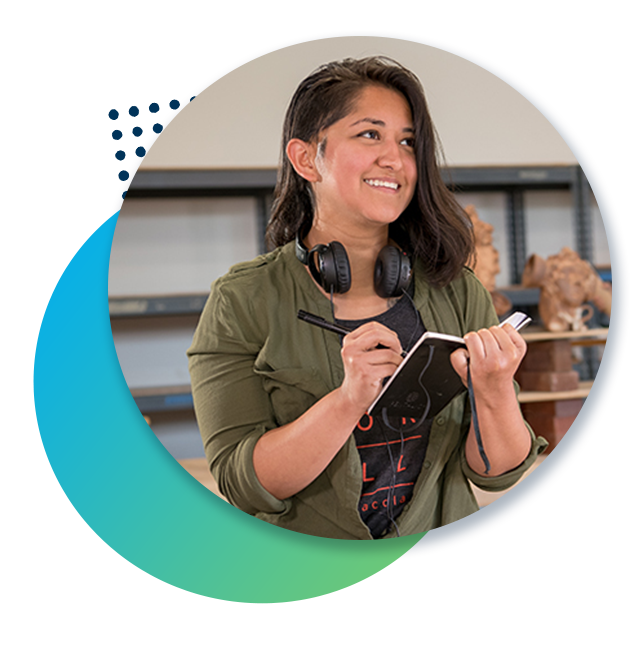
Why Augusta?
Three tracks of study means you can follow your interests and pursue the career that excites you.
Small classes and individual mentoring by dedicated faculty ensure you receive personalized attention in a supportive environment.
Internships and assistantships provide opportunities to gain valuable experience and/or financial support.
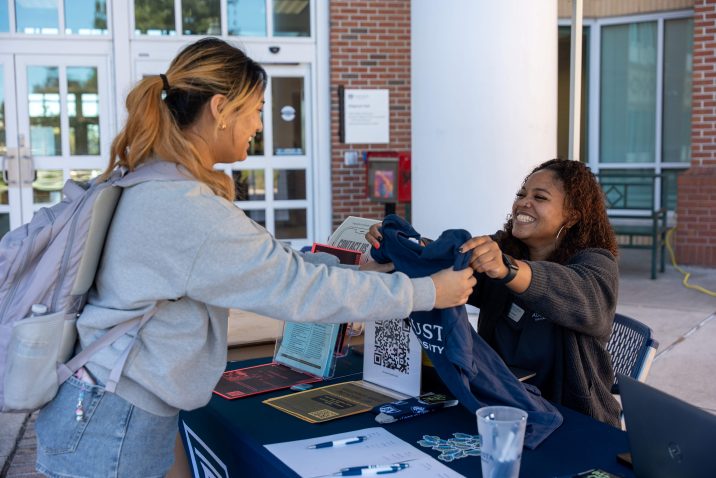
Augusta University celebrates National Transfer Student Week
Augusta University celebrates National Transfer Student Week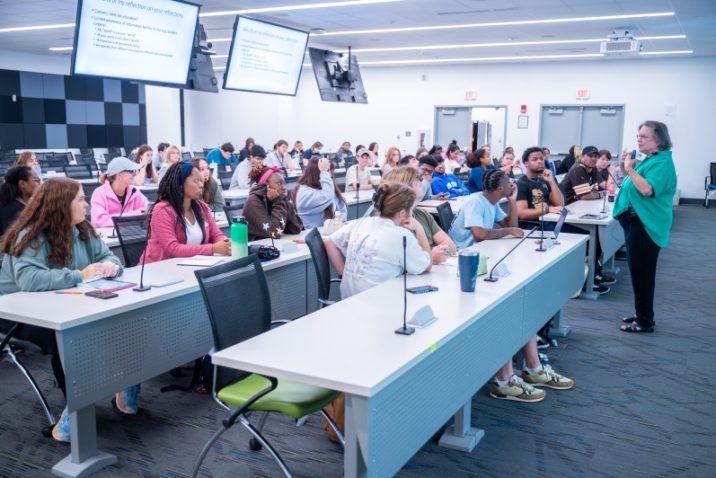
Augusta University announces 2025-26 Teaching Excellence Award winners
Augusta University announces 2025-26 Teaching Excellence Award winners